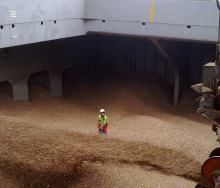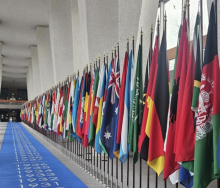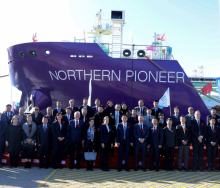Technological innovation and industry collaboration are key to border post efficiency.
That was the message from Michael Henning, sales manager at Easyclear, who told delegates at a virtual Transport Forum that this would immediately increase efficiency at border posts, facilitate trade, and improve productivity and revenue collection, allowing customs to realise one of its top goals – job creation in South Africa.
According to Henning, congestion has become an all-too-familiar sight at border posts, especially during peak seasons.
“In December congestion was exacerbated by the implementation of Covid-19 protocols by the Department of Health as the second wave engulfed South Africa. Adding to this was a lack of foresight and planning coupled with social distancing measures implemented to protect staff working at border posts, all of which affected the flow of trade through the border.”
Gridlocked vehicles at Beitbridge brought the flow of traffic to a complete standstill. “A clear lack of coordination between various government agencies and the policies of trade partners such as Botswana only added to the increased volume of outbound traffic at Beitbridge.”
He said while it was not uncommon to see an increase in traffic volumes over the festive season, the queues of up to 17km not moving more than a few yards in 48 hours was extremely concerning.
Similar scenes played out at the Lebombo border post where vehicles were also gridlocked and backed up for kilometres on end.
“The African Continental Free Trade Area is a groundbreaking opportunity to realise the potential of millions of traders across the continent. We cannot afford to stymie this through inefficient borders hampered by administrative processes, ineffectual policy application, and lack of cooperation between trading partners.”
Henning said addressing the current situation required switching on technology to facilitate trade.
“We have to leverage technology to connect the partners in the supply chain,” he said. “Our other trade partners on the continent need to have similar visions to those of Sars - to embrace and share information through technology.”
Henning complimented Sars on its decision to revive the modernisation programme, saying its vision to use technology was a step in the right direction.
“It speaks to the Internet of Things and connecting the entire supply chain so that we are sharing data across all platforms, allowing all stakeholders to make more efficient decisions.”
Welcoming initiatives such as the Authorised Economic Operator (AEO) programme, he said this would net illegitimate traders, fast-tracking clearance for partners.
“Through digital trade, we need to embrace the new landscape,” said Henning. “The disruptive technology brings with it changes to the existing workflow. It is not just about technology, interdependency in the supply chain is vital.”













